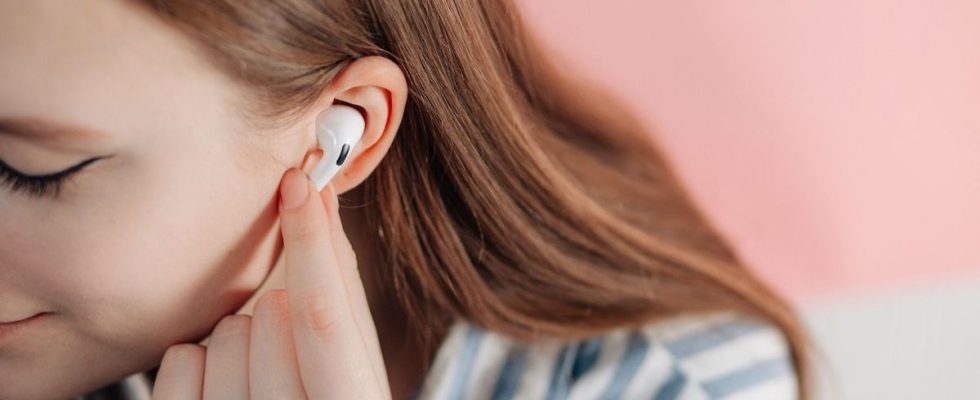Published on
Updated
Reading 2 min.
While in-ear headphones offer a highly enjoyable immersive experience, they also present health risks. Our advice to avoid them.
No offense to some, wearing in-ear headphones (Airpods type) can damage the eardrum when the sound level is too high, but also increase the risk of infections.
Watch out for earwax blockages!
In-ear headphones are small audio devices that fit into the entrance to the ear canal. Their main advantage?
They lavishtrue passive isolation as well as better audio performance, especially at the lowest frequencies“, explains the site The Digitals.
The problem ? If their use is not respected, they present real health risks.
“Wearing headphones, as well as earplugs to protect against noise at night, can irritate the skin and encourage the formation of earwax deposits.“, reveals Nils Morel, ENT and president of the ENT union, to Tech&Co.
However, the accumulation of earwax is not trivial. Health Insurance explains that earwax blockage can cause hearing loss, ringing or tinnitus, dizziness, a feeling of blocked ear, full ear or pressure in the ear; irritation, itching or pain in the ear canal.
To avoid these inconveniences, wearing your in-ear headphones reasonably is recommended. Wearing a helmet may also be considered.
Itching, patches and crusts
Prolonged wearing of these in-ear headphones can also modify the microbiota of the ears (all the microorganisms that live there) by depriving it of oxygen. A bit like keeping shoes closed all the time can induce a proliferation of different bacteria, causing bad odors.
Earphone tip materials can also irritate the sensitive skin in the ear canal and even cause allergies.
“A correspondence published in the International Journal of Dermatology in 2022, about five cases of allergy to AirPods, concludes that the problem may be linked to acrylates or methacrylates. Another study published in 2021 in the scientific journal Dermatitis hypothesizes that during the manufacturing of AirPods, a small proportion of acrylates does not polymerize completely, explaining the presence of more strongly allergenic monomers.“, confirms the magazine 60 million consumers.
In this case, avoiding the “responsible” allergen, nestled in the earphone, remains the best solution.
A healthcare professional should also be consulted.

